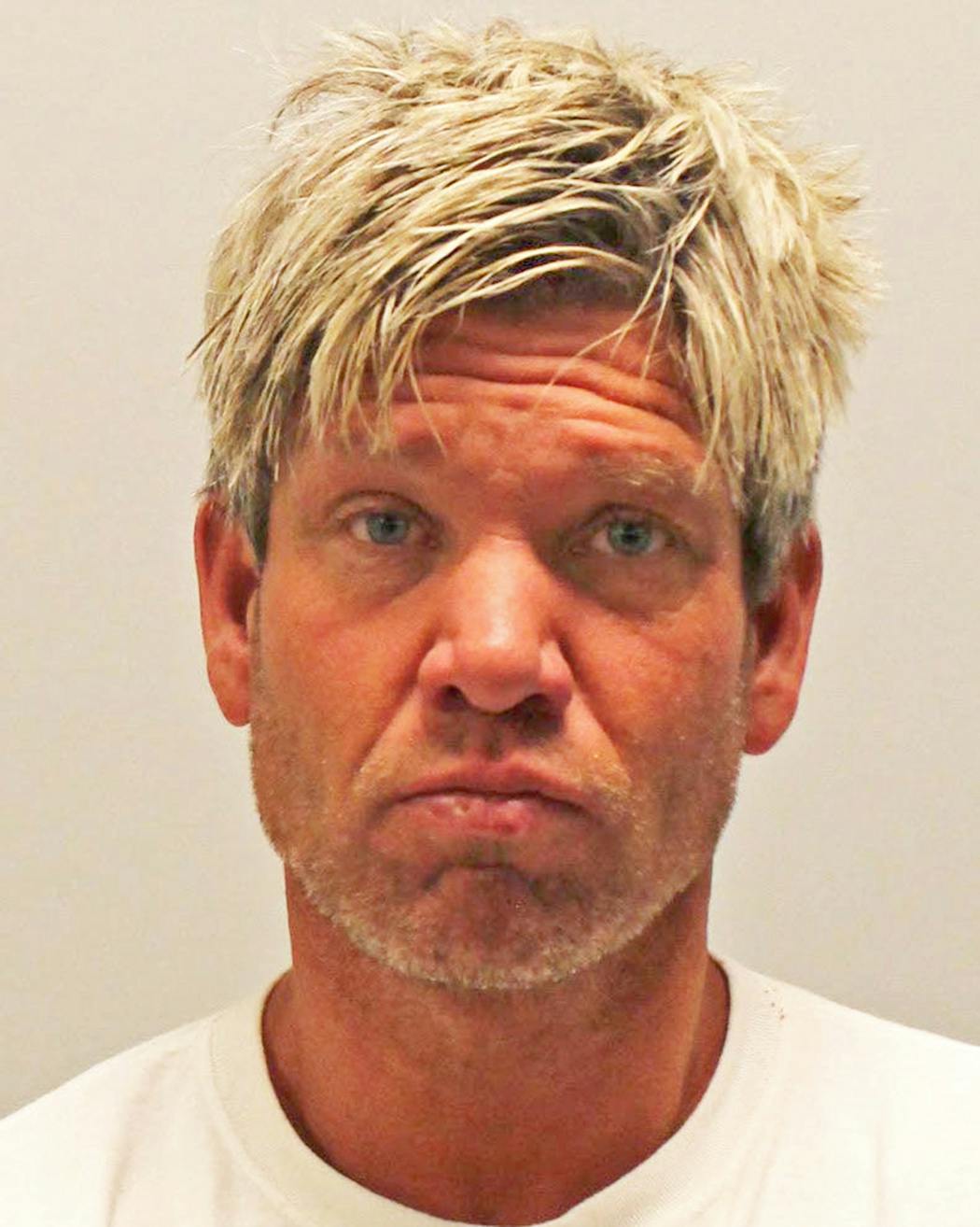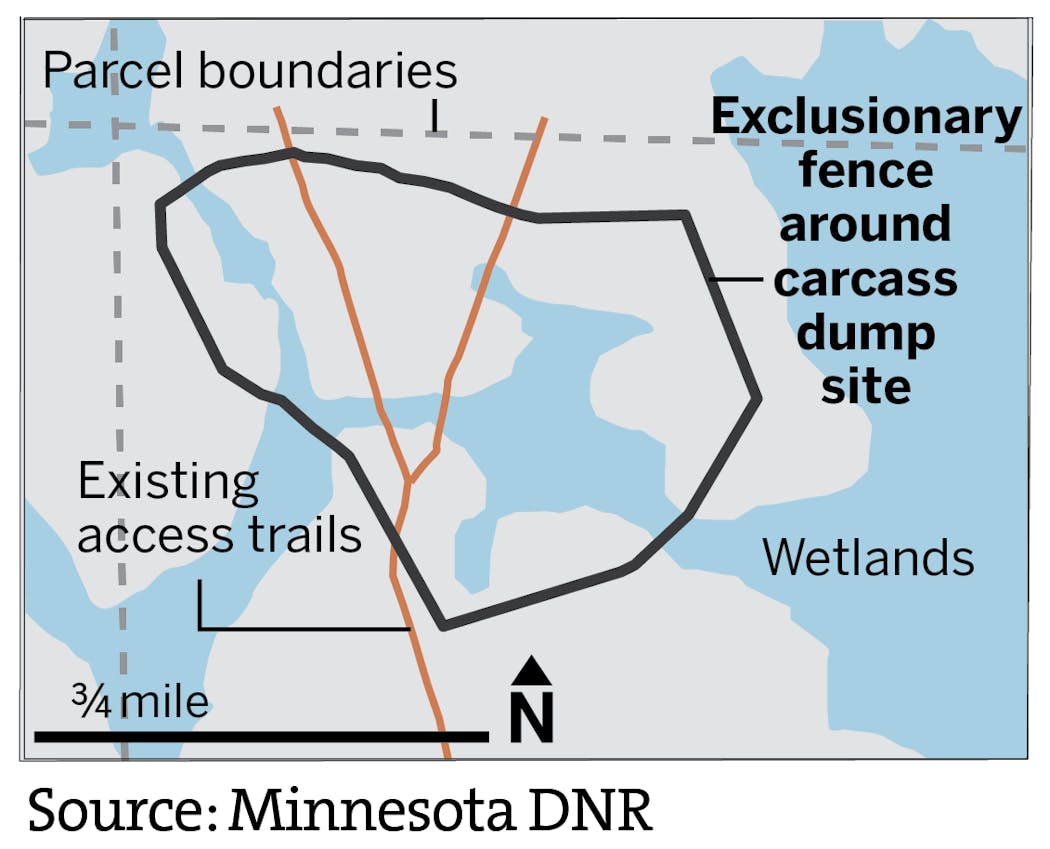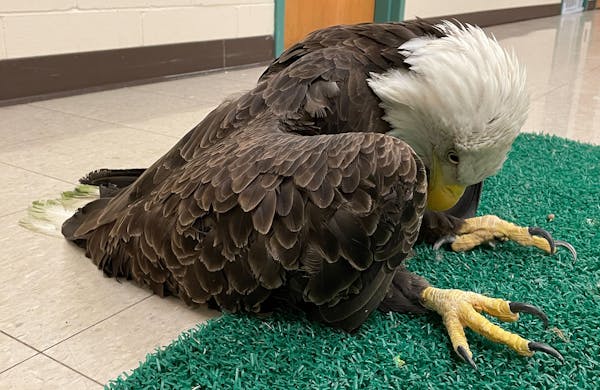A northern Minnesota deer farmer whose herd was infected with chronic wasting disease (CWD) is refusing to pay for a $194,000 fence that state wildlife officials built around a swath of public forest where the man admittedly dumped his farm's dead deer, creating a biohazard.
According to documents obtained from the Minnesota Board of Animal Health, Dean T. Page was ordered last year by the agency to clear trees and brush around the tainted, 11-acre site and cordon it off with 3,000 feet of woven wire fencing, 10 feet high. When he objected, the Department of Natural Resources carved out a 120-foot-wide construction perimeter and built a rugged "exclusionary'' fence to keep deer and people out of the area.
The deer farmer's ongoing refusal to foot the bill and maintain the fence for the next 20 years has led to a legal case that will be watched closely this year by deer hunters, wildlife officials, lawmakers and the commercial deer farm industry. And now, with the dispute in the hands of an administrative law judge, Page has been publicly identified for the first time.
His now-defunct deer farm in Hines, Minn., northeast of Bemidji, was located very close to property owned by his father, Dennis. The Page family is from the area and Dean Page went to Blackduck High School. A check of court records by the Star Tribune shows numerous motor vehicle violations by Dean Page and a 2017 conviction for misdemeanor domestic assault that resulted in jail time.
His attorney in the deer farming case, Robert Hajek, said this week that the state wants to get rid of deer farming and has overreached its authority in Page's case to make an example of him.
"It's ridiculous," Hajek said. "They just kind of went overboard on this guy.''
He said the order for a 10-foot-high fence, to be maintained for 20 years, is arbitrary and excessive compared to normal government fencing requirements in CWD cases.
State Attorney General Keith Ellison is among those who are attempting to hold the 49-year-old Page accountable for breaking laws that guard against the spread of CWD, a fatal neurological affliction in deer and elk likened to Mad Cow Disease. In western states where CWD prevalence is much greater than in Minnesota, wildlife officials have recorded significant declines in deer populations, the documents say.
"CWD represents a major economic threat as deer hunting represents a $500 million industry in Minnesota,'' Ellison wrote in a court filing. "As it relates to human health and the environment, the potential for CWD to jump the species barrier and affect domestic animals or humans is a serious threat.''
The same document said the illegal carcass dump site lies in a region of good deer hunting where wild venison is an important food source for three Ojibwe tribes. State and federal health officials advise people not to eat meat from CWD-infected animals.
Even before the state's litigation against Page came to light, deer hunters and conservationists bemoaned the Board of Animal Health's announcement in April that a 3-year-old doe tested positive for CWD on an undisclosed deer farm in Beltrami County — the furthest north in Minnesota that CWD had ever been detected.
Then in late May, the board disclosed — again without naming Page — that 12 more deer on his Beltrami farm tested positive for CWD and that CWD-causing prions had been discovered in a secluded county-owned woodland where the farmer illegally dumped carcasses. The disclosures fueled outcries at the Capitol and elsewhere to ban deer farming for its role in spreading CWD.
Page's refusal to abide by the Board of Animal Health's "Remedial Action Order" is centered on his position that the fence was "entirely unnecessary, ineffective, and unreasonable.'' Moreover, he contends there's no proof of CWD prions at the dump site because the detection method used by University of Minnesota researchers is not sanctioned by the U.S. Department of Agriculture and not approved for regulatory action.
Page's stance is outlined in a court declaration written by veterinarian Clifford F. Shipley, professor emeritus at the University of Illinois and an officer of the Illinois Deer Farmers Association.
"There is no reliable evidence that any of the carcasses were CWD positive,'' Shipley wrote. "Without positive CWD proof, no remediation steps are necessary.''
But Administrative Law Judge Barbara Case denied a request by Page to exclude the evidence of CWD prions at the dump site. Assistant Attorney General Philip Pulitzer noted on the board's behalf that the carcasses secretly dumped by Page were too decomposed for traditional CWD testing. He shouldn't be rewarded for breaking the law by having results from the so-called RT-QuIC tests disqualified, Pulitzer argued.
The judge, in her ruling, said she reviewed "ample material'' about RT-QuIC as a "relatively longstanding, reliable, and generally accepted'' method to test for CWD prions. Still, Shipley said, building a fence and maintaining it for any period of time is pointless if the site is contaminated. That's because birds and other scavengers can transfer the infectious particles well beyond the fence, the professor wrote.
Shipley said in his declaration that the payment demand against Page was merely to punish him "and to make the board feel as if it was doing 'something' to limit the spread.''
Beth Thompson, executive director of the Board of Animal Health, said Page was ordered to replenish state coffers and maintain the fence because he broke the law and created a threat to wildlife, the environment and public health. "I don't think it's an overreach at all,'' she said.
Her agency said Page broke the law in four ways: moving quarantined deer off his farm; dumping their carcasses on public land; failing to test all of his farm's dead deer for CWD; and failing to maintain accurate herd records, including unreported deer deaths.
The Board of Animal Health registered Page as a deer farmer in 2018. Thompson said the agency doesn't require criminal background checks on deer farmers and was unaware of his 2017 conviction in Dakota County on a domestic abuse charge for acts causing fear of immediate bodily harm or death.
Court records also show a 2013 conviction against Page in Anoka County, where he was charged with obstructing legal process and interfering with a police officer, a gross misdemeanor. His driving record dating to 2011 includes at least 12 violations in five counties, including driving after suspension in Cass County.
Thompson said it will be interesting to see if any legislators raise the possibility of criminal background checks for deer farming applicants. State law already requires the board to screen people applying for permission to work as commercial dog and cat breeders.
Her agency has requested a "summary disposition'' in favor of the board. But Hajek, the attorney for Page, is expecting the case to go to trial. He noted that the DNR has thus far not detected CWD in any wild deer in the broadly mapped disease management zone around Hines.
Jordan Montgomery wins in debut, Diamondbacks get 22 hits in 17-1 win over Giants
Ingram, Valanciunas lift Zion-less Pelicans past Kings and into the playoffs
Justin Turner's homer, RBI single highlight Blue Jays' 5-1 win over the Padres
![Minnesota Twins pitcher Jhoan Duran (59) in the ninth inning Tuesday, August 15, 2023, Target Field in Minneapolis, Minn. ] CARLOS GONZALEZ • carlos](https://arc.stimg.co/startribunemedia/NWLT5CNXGTRZA6KVTMIPSOG3KI.jpg?h=91&w=145&fit=crop&bg=999&crop=faces)



